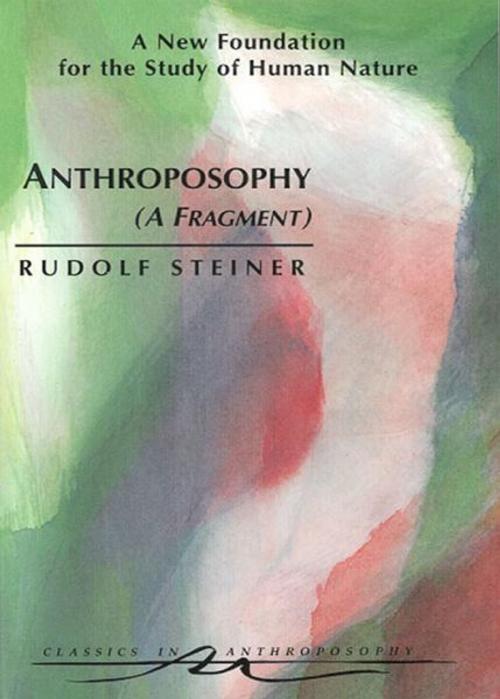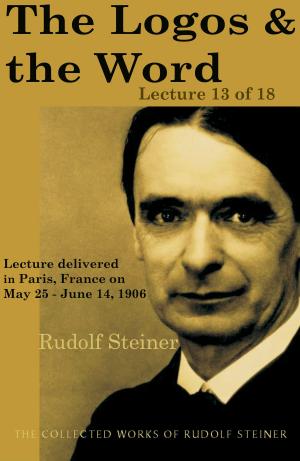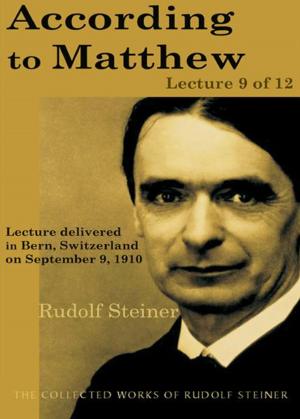| Author: | Rudolf Steiner | ISBN: | 9780880109567 |
| Publisher: | SteinerBooks | Publication: | July 1, 1996 |
| Imprint: | SteinerBooks | Language: | English |
| Author: | Rudolf Steiner |
| ISBN: | 9780880109567 |
| Publisher: | SteinerBooks |
| Publication: | July 1, 1996 |
| Imprint: | SteinerBooks |
| Language: | English |
This written attempt to create a spiritual anthropology was found among Rudolf Steiners unpublished works after his death. Although fragmentary, this key work on "Anthroposophy" is of enormous interest and importance. It is work whose time has finally arrived. Here are the first steps toward the development of a true psychology of spirit, using a phenomenological approach to the human senses, the life processes, the I-experience, the human form, and the human relationship to higher spiritual worlds. Steiner struggled to express the concepts related in this book, since many of the terms used in neurology, psychology, and cognitive studies did not yet exist in 1910. Since then there has been much progress, and this translation benefits from more than eighty years of development in the study of the human senses, cognition, and, neurology. Steiner's "Anthroposophy" lies halfway between anthropology and theosophy as a means of studying the human being. On the one hand, anthropology studies the human being through the physical senses using empirical scientific method; theosophy, on the other hand, recognizes the spiritual nature of the human being based on inner experience and attempts to understand human nature within the realm of spirit. Anthroposophy takes the middle way, studying human beings as they present themselves to physical observation while, at the same time, attempting to derive indications of the spiritual foundations of phenomena through a process of "phenomenological intensification." The results of this intensification are extremely important and constitute the first steps toward a truly cognitive psychology.
This written attempt to create a spiritual anthropology was found among Rudolf Steiners unpublished works after his death. Although fragmentary, this key work on "Anthroposophy" is of enormous interest and importance. It is work whose time has finally arrived. Here are the first steps toward the development of a true psychology of spirit, using a phenomenological approach to the human senses, the life processes, the I-experience, the human form, and the human relationship to higher spiritual worlds. Steiner struggled to express the concepts related in this book, since many of the terms used in neurology, psychology, and cognitive studies did not yet exist in 1910. Since then there has been much progress, and this translation benefits from more than eighty years of development in the study of the human senses, cognition, and, neurology. Steiner's "Anthroposophy" lies halfway between anthropology and theosophy as a means of studying the human being. On the one hand, anthropology studies the human being through the physical senses using empirical scientific method; theosophy, on the other hand, recognizes the spiritual nature of the human being based on inner experience and attempts to understand human nature within the realm of spirit. Anthroposophy takes the middle way, studying human beings as they present themselves to physical observation while, at the same time, attempting to derive indications of the spiritual foundations of phenomena through a process of "phenomenological intensification." The results of this intensification are extremely important and constitute the first steps toward a truly cognitive psychology.















